Research and Innovation

VSRC renewed through 2026
by Satina Richardson
Vision Science Research Center (VSRC) funding has been renewed through Sept. 30, 2026. The Center grant sustains key programs, including pilot grants, equipment upgrades, and graduate training. The VSRC also supports the National Eye Institute (NEI P30) Center Grant for Vision Research that has been continuously funded at UAB since 1979.
Read more
Khanal leads UAB in $25 million myopia prevention study
Myopia, commonly known as nearsightedness, is a global epidemic that affects over 2 billion people worldwide and up to 90 percent of the population in East Asia.
Read more on UAB News

UAB receives $2.1 million grant to study how the brain sees through retinal damage
Lawrence Sincich, Ph.D., professor at the University of Alabama at Birmingham School of Optometry was awarded a $2.1 million R01 grant to support a pioneering four-year research project titled “Elementary Cone Photoreceptor Representation in Primary Visual Cortex” by the National Eye Institute.
Read more
Unveiling the mysteries of Alzheimer's
At the UAB School of Optometry, a trio of vision scientists is making waves in the field of Alzheimer’s disease (AD) research. Their groundbreaking work is not only pushing the boundaries of science but also offering hope to millions affected by this relentless condition.
Read more
Optometry professor secures R01 grant to combat myopia epidemic
Timothy Gawne, PhD, FAAO, UAB School of Optometry professor, has been awarded an R01 grant to investigate the growing epidemic of myopia (nearsightedness), a condition affecting over 40 percent of the U.S. adult population and approximately one billion people worldwide. This significant public health issue is linked to abnormal elongation of the eyeball, which raises the risk of developing blinding conditions.
Read more
New clinical trial explores an innovative method to slow nearsightedness in children
Safal Khanal, OD, PhD, FAAO, was awarded a two-year R21 grant from the National Eye Institute to evaluate the efficacy of a novel, wavelength-based method in slowing the progression of myopia (nearsightedness) in children.
Read more
Khanal recognized nationally as outstanding young scientist
by Satina Richardson
Safal Khanal, OD, PhD, FAAO, UAB School of Optometry assistant professor, was awarded the Irvin M. and Beatrice Borish Award from the American Academy of Optometry (AAO). This award recognizes an outstanding young scientist or clinician scientist who shows exceptional promise in conducting independent optometric research directly related to etiology, prevention, detection, diagnosis or management of clinical eye disorders.
Read more
Eye disease links potential biomarker to Alzheimer’s disease found in the retina
Researchers at the University of Alabama at Birmingham have found a potential link between putative retinal gliosis and Alzheimer’s disease in a recently published study. The study, published in the Investigative Ophthalmology & Visual Science journal, demonstrates that putative retinal gliosis could be a sign of Alzheimer’s disease-related neuroinflammation, an inflammatory response within the brain or spinal cord.
Read more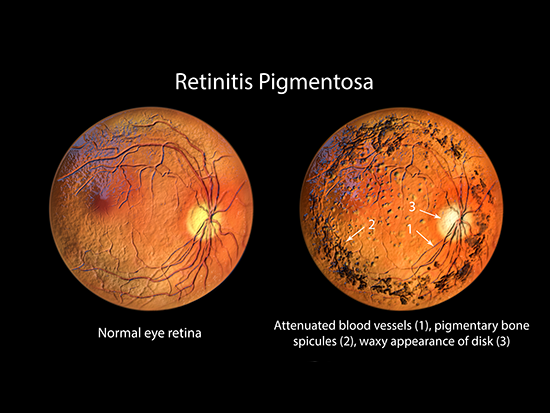
ALG6 acts as a modifier gene in the inherited genetic eye disease retinitis pigmentosa 59
Modifier genes add complexity to precision medicine. A modifier gene is one that has genetic variants such as single nucleotide changes that differ from the most common sequence in the population. These variants do not cause disease by themselves but can lessen or exacerbate a different genetic disease phenotype by unknown mechanisms.
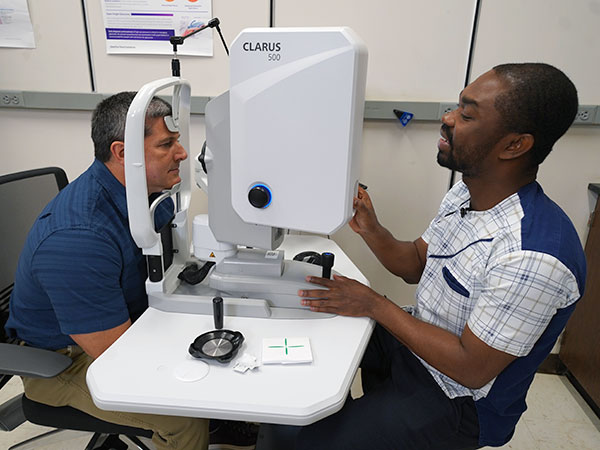
Research evaluates how retina could yield early Alzheimer’s disease diagnosis
by Satina Richardson
UAB School of Optometry vision scientists are participating in research to evaluate how changes in the retina might play a role in diagnosing Alzheimer’s disease. Their findings could lead to non-invasive, low-cost tests and the early diagnosis of the disease, which progresses for decades before symptoms of dementia emerge.
Read more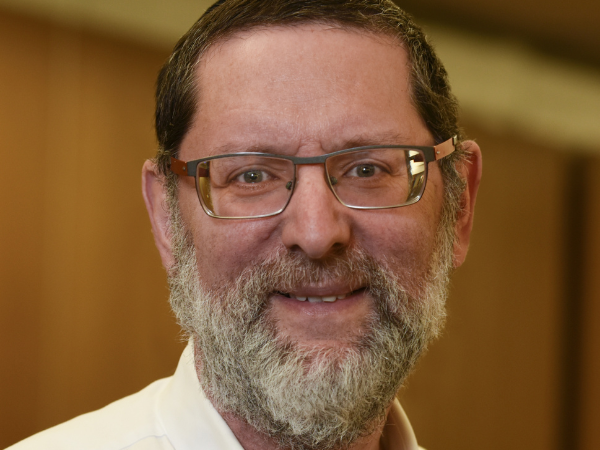
Mouse model of retinitis pigmentosa RP59 shows key biochemical and diagnostic features of the human disease
Retinal degeneration in the disease retinitis pigmentosa is caused by a family of hereditary mutations that slowly lead to blindness over years or decades. A mouse model of one of these forms of retinitis pigmentosa, RP59, exhibits key biochemical and diagnostic features of human RP59, University of Alabama at Birmingham researchers report in the journal Cell Death and Disease.
Read more
Bai awarded $1.8 million R01 grant
by Satina Richardson
Yuqiang (Bob) Bai, PhD, UAB School of Optometry researcher, has been awarded a National Institutes of Health (NIH)/National Eye Institute (NEI) $1.8 million five-year R01 grant. Findings could improve dry eye disease diagnosis and monitoring.
Read more
Nearsighted progression in children is not slowed by very low dose (0.01%) atropine drops, according to new research
It is predicted that, by 2030, some 39 million people in the United States will have myopia, or nearsightedness, according to the National Eye Institute. Earlier research suggests that the use of low-dose atropine drops plays a role in slowing the progression of myopia in children living in Asian countries. However, new research from the University of Alabama at Birmingham found that the use of low-dose atropine eye drops was no better than placebo drops at slowing myopia progression and elongation of the eyes of a diverse group of children living in the United States.

First-time study evaluates real-time contact lens comfort
by Nathan Anderson
Terri Call, OD, was first author of a paper titled Real-Time Ocular Comfort Reporting in Monthly Replacement Contact Lens Wearers. The featured research is the first study to describe real-time contact lens comfort over the life of a monthly replacement contact lens.
Read more
Arthur to investigate affordable early detection of Alzheimer's disease
by Satina Richardson
Edmund Arthur, OD, PhD, FAAO, was awarded a National Institute of Health R21 grant from the National Institute on Aging. The $408,375 two-year pilot grant aims to develop a novel, non-invasive, and cost-effective retinal vascular biomarker for early Alzheimer’s Disease (AD) risk detection and disease monitoring.
Read more
Researchers find potential therapy to slow progression of nearsightedness
In a preclinical model, School of Optometry researchers Timothy Gawne, Ph.D., and Thomas Norton, Ph.D., studied how adjusting visual cues through chromatically simulated myopic blur could be useful in slowing the progression of myopia, or nearsightedness. Read more on UAB News

Khanal becomes first optometry faculty to receive AAO Career Development award
Safal Khanal, OD, PhD, FAAO, assistant professor at the UAB School of Optometry, received the 2022 Career Development Award from the American Academy of Optometry (AAO). Khanal is the School’s first faculty member and one of only six faculty members nationwide to receive this honor since its inception in 2015.
Read more
Gorbatyuk R01 to study effects of vesicants on ocular tissues
by Satina Richardson
Marina Gorbatyuk, PhD, has been awarded a three-year, $445,500, R01 grant co-funded by the National Institute of Allergy and Infectious Diseases and the National Eye Institute (NEI).
Read more
Wang receives NIH R00 grant
Yuchen Wang, PhD, assistant professor of vision science at the UAB School of Optometry, has been awarded a National Institutes of Health (NIH) Pathway to Independence Award known as an R00 grant. The goal of this award is to further study the molecular mechanisms underlying retinal synapse formation and function which are critical for retinal visual processing and vision.
Read more
Microscope to advance vision science discoveries at UAB
by Satina Richardson
The University of Alabama at Birmingham is one of the first, if not the first, academic centers in the United States to acquire a new, state-of-the-art microscope that will advance vision science discoveries at the university. This microscope is the only one of its kind in the southeast region and one of few available in the United States due to the newness of the technology.
Read more
Walline delivers 2021 Springer Lecture
by Satina Richardson
Jeffrey Walline, OD, PhD, delivered the 2021 Springer Lecture. This was the 23rd year for this esteemed event, which is supported by the Nathaniel E. Springer Memorial Fund established in 1999 by the Springer family and Donald Springer, OD, in memory of his father. Springer was instrumental in founding the School of Optometry.
Read more
Assistant professor awarded dry eye career development grant
Jillian F. Ziemanski, OD, PhD, FAAO, is the 2021 recipient of the Korb-Exford Dry Eye Career Development Grant by the American Academy of Optometry Foundation. The grant is designed to support an individual to further their knowledge in the broad area of dry eye disease.
Read more
Nichols named UAB’s senior associate vice president
by Satina Richardson
Jason Nichols, OD, MPH, PHD, FAAO, has been named UAB’s senior associate president for research. Nichols’ existing responsibilities include leading entrepreneurial and clinical trial initiatives in the Office of Research, serving on the Center for Clinical and Translational Science Executive Committee, and ongoing return to research operations planning. He will now also assume leadership duties of the merged offices of Research Development & Internal Programs as well as Research Engagement & Partnerships.
Read more
Researcher awarded NEI/NIH R21 grant
by Caleb Jones
Yuqiang (Bob) Bai, PhD, a researcher in the lab of Jason Nichols, OD, MPH, PHD, FAAO, has been awarded an NEI/NIH R21 grant to develop an interferometry system with unprecedented sub-micron resolution to understand tear film structure and function in dry eye disease. The grant is for two years, totaling $370,101.
Read more
UAB received more than $325 million in research funding from the National Institutes of Health in 2020
Research funding to the University of Alabama at Birmingham from the National Institutes of Health exceeded $325 million in 2020. The university received $325,573,502, according to the Blue Ridge Institute for Medical Research. That placed UAB 27th in the list of universities receiving funding from the NIH. Among public universities, UAB ranked 12th.

Caffery featured as 2020 Springer Lecture honoree
The 2020 Springer Lecture honored Toronto-based optometrist Barbara Caffery, OD, PhD, FAAO. During her lecture, titled “Corneas, Contact Lenses and the Vale of Tears,” she noted the current leading matters of concern being faced by optometrists as well as the role of optometrists in unveiling the natural history of eye disease.
Read more
Nichols honored for COVID-19 Papers
The American Public Health Association (APHA) has recognized Jason Nichols, OD, MPH, PhD, FAAO, UAB associate vice president for research and professor at the UAB School of Optometry, with its 2020 Vision Care Section (VSC) Outstanding Scientific Paper Award.
Read more
Retinitis pigmentosa research probes role of the enzyme DHDDS in this genetic disease
Researchers who made a knock-in mouse-model of the genetic disorder retinitis pigmentosa 59, or RP59, expected to see retinal degeneration and retinal thinning. As reported in the journal Cells, they surprisingly found none, calling into question the commonly accepted — though never proved — mechanism for RP59.

Savage awarded F32 grant to study the relationship between orientation and color selectivity in the primary visual cortex
Michael Savage, PhD, postdoctoral fellow, has been awarded an NEI/NIH F32 grant to study the relationship between neuronal orientation and color selectivity in the primary visual cortex.
The grant is for three years, totaling $136,823. It has been 20 years since one of these competitive postdoctoral grants from NEI was won by someone in the UAB School of Optometry.
Read more
Sincich receives grant renewal from NIH for research on imaging and stimulation of photoreceptors
Lawrence Sincich, Ph.D., associate professor and interim director of the graduate program in the School of Optometry at the University of Alabama at Birmingham, has received a grant renewal of $1.02 million from the National Institutes of Health, continuing his research on imaging and microstimulation of photoreceptors, the cells in the eyes that allow people to see.

Kraft receives grant renewal for cone dynamics research
Timothy Kraft, PhD, professor and interim associate dean for research in the UAB School of Optometry, has received a grant renewal of $464,046 from the National Institutes of Health (NIH), continuing research about the comprehensive quantification of cone dynamics. The cost for all 4-years is $1.77 million, and this notice is the award of year two of the four years.
Read more
Srivastava awarded R01 grant to study cataract development
Researcher Om Srivastava, PhD, professor at the UAB School of Optometry, hopes to slow the progression of age-related cataracts, the most common causes of blindness in the world.
Read more
Liu awarded R01 grant to study ways virtual reality can assist with low vision rehabilitation
An R01 grant awarded to Lei Liu, PhD, FAAO, UAB School of Optometry associate professor, by the National Eye Institute/National Institutes of Health, will study the use of virtual reality and intelligent tutoring to make low vision rehabilitation more accessible and affordable.
Read more
Gorbatyuk gets funded for diabetic retinopathy research
Marina Gorbatyuk, PhD, associate professor of vision science, has been awarded a National Institutes of Health $297,000 R21 grant to study an animal model for the treatment of diabetic retinopathy and improve the sight of patients with the condition.
Read more
Ziemanski awarded NEI K23 grant to study Sjögren’s-related dry eye disease
Jillian Ziemanski, OD, MS, FAAO, research assistant professor at the UAB School of Optometry, has been awarded a 5-year K23 grant for $717,250 from the National Eye Institute to evaluate mechanisms of autoimmunity in patients who have dry eye disease due to primary Sjögren’s syndrome (pSS).
Read more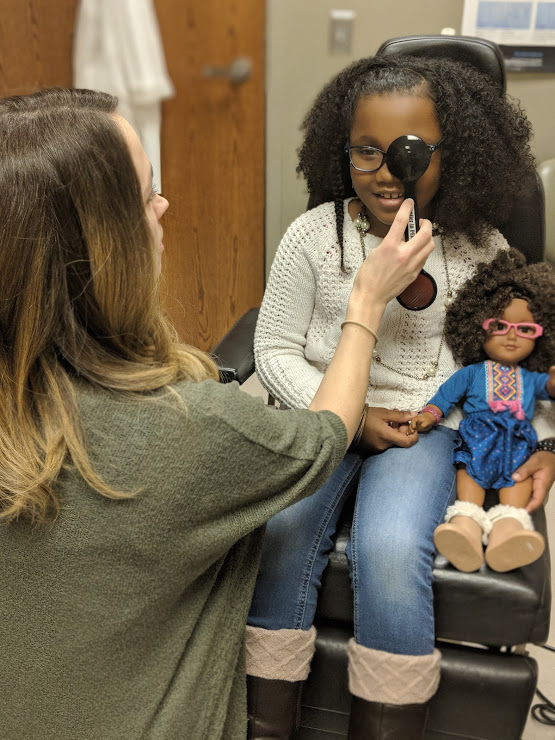
Pediatric eye clinic named PEDIG site of the month
The UAB School of Optometry’s pediatric eye clinic was named the November Pediatric Eye Disease Investigator Group (PEDIG) site of the month for recruiting the highest number of pediatric patients for clinical trials. The studies, being conducted in partnership with the National Institutes of Health (NIH), Optometry and Ophthalmology, focus on conditions like lazy eye, eye turns and myopia.
Read more
Gawne awarded R01 grant to study myopia
A team of researchers at the University of Alabama at Birmingham’s School of Optometry have been awarded a $1.5 million R01 grant to investigate ways to reduce the development of myopia, also known as nearsightedness.
Timothy Gawne, Ph.D., associate professor of optometry and vision science, was awarded the grant by the National Eye Institute based on research that suggests exposure to narrow-band red light can slow axial elongation.
Read more
Optometry has the most advanced scleral contact lens technology available
With the addition of EyePrint PRO and the purchase of an sMap3D scleral topographer, the UAB School of Optometry now has the most advanced scleral contact lens technology available in its UAB Eye Care clinic. This means that almost all patients who need them can be fitted with a customized scleral contact lens.
Read more
Optometry professors receive VSRC pilot grant support
Faculty members from the University of Alabama at BirminghamSchool of Optometry have received Pilot Award Grants from the Vision Science Research Center (VSRC), to support new project ideas that could have great potential to advance understanding of ocular disease.
Read more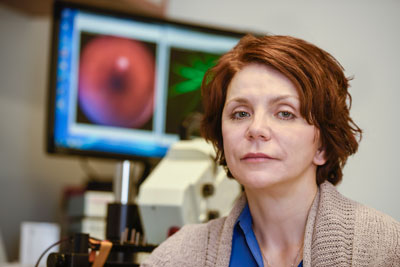
Faculty member awarded grant for retinal degeneration research
A researcher at the UAB School of Optometry has been awarded a $1.25 million R01 grant from the National Eye Institute to study the regulation of protein synthesis in photoreceptors of mice with inherited retinal degeneration.
This research, led by Marina Gorbatyuk, PhD, associate professor of vision science, will not only lead to a better understanding of vision loss in humans, but will also promote the development of new strategies for stopping retinal degeneration.
Read more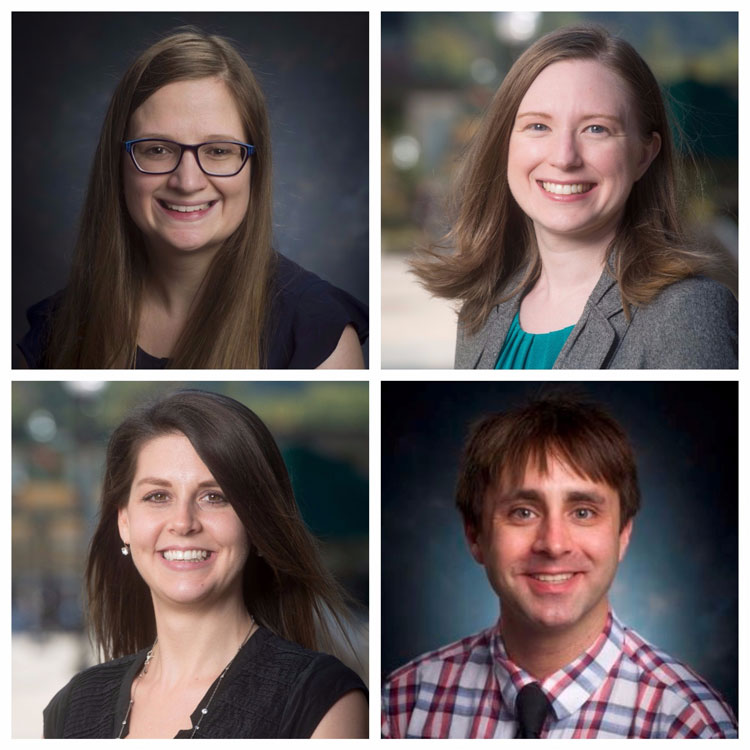
Faculty conduct innovative research in exchange for student loan repayment relief
In exchange for biomedical research in vision science, the National Institutes of Health are repaying the student debt of four faculty members at the UAB School of Optometry.
The faculty members who have contracts with the NIH Loan Repayment Programs, established by Congress to recruit and retain highly qualified health professionals into biomedical or biobehavioral research careers, are: Anna Ablamowicz, O.D., clinical assistant professor; Stephanie Cox, O.D., clinical assistant professor; Andrew Pucker, O.D., Ph.D., assistant professor; and Jillian Ziemanski, O.D., M.S., clinical assistant professor.
The programs repay up to $35,000 annually of a researcher’s qualified educational debt in return for a commitment to engage in NIH mission-relevant research.
Read more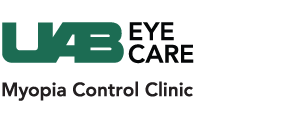
Treating myopia in pediatric patients
Two UAB School of Optometry faculty recently spoke to Birmingham pediatricians about the recommended guidelines for treating myopic pediatric patients and shared research about slowing myopia progression over time.
Katherine Weise, O.D., professor at the School of Optometry, and Andrew Pucker, O.D., assistant professor, spoke to grand rounds attendees at Children’s of Alabama on Thursday, June 22. Their presentation, “Controlling Nearsightedness: Headlines, Hyperbole, and Hypotheses vs. The Evidence,” also included information about the newly developed Myopia Control Clinic at UAB Eye Care.
If one or both parents of a child is myopic, or nearsighted, odds are the child will also develop myopia, explained Weise.
Read moreResearch presentations identified as hot topics at ARVO annual meeting
Two research presentations by UAB School of Optometry faculty and students were identified as some of the newest and most innovative topics at the Annual Meeting of the Association for Research in Vision and Ophthalmology (ARVO).
The presentations are part ARVO’s list of Emerging Trends and Hot Topics, which is compiled by ARVO committee members. The 2017 ARVO Annual Meeting was held May 7-11 in Baltimore, Maryland.
Read more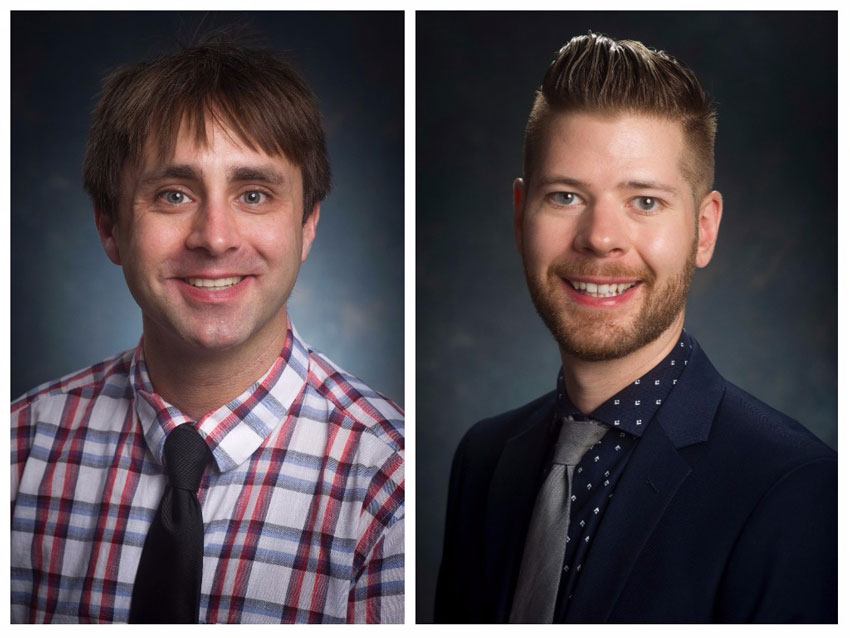
Dry eye disease research gets UAB funding
A faculty member and a doctoral student at the UAB School of Optometry were awarded university funding for their research on dry eye disease.
Andrew Pucker, O.D., Ph.D., assistant professor, and Cameron Postnikoff, MASc, a doctoral student in the School of Optometry's Vision Science Graduate Program, received $10,000 as part of the UAB Faculty Development Grant Program for their proposal, “Tear Transcriptome Associations with Dry Eye Disease.”
Read more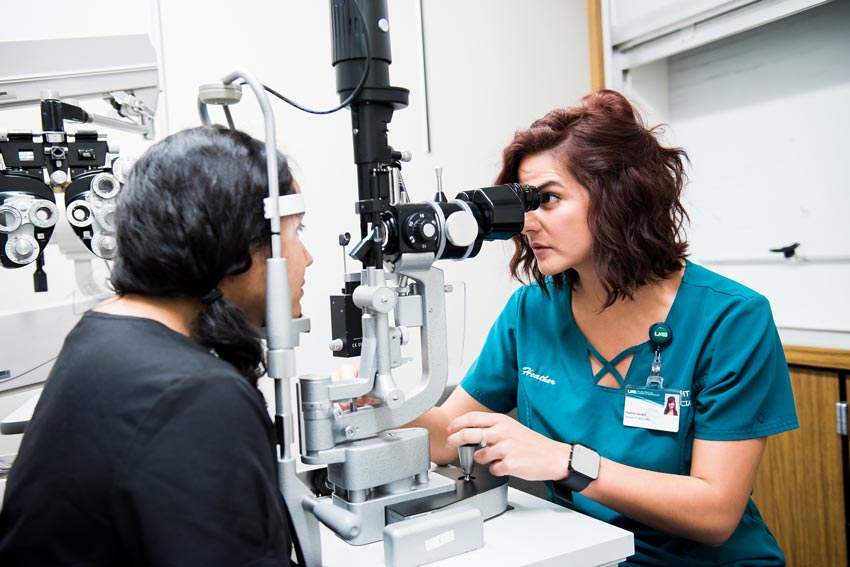
Research Facility recruiting contact lens wearers for study
The UAB School of Optometry's Clinical Eye Research Facility is recruiting subjects for a contact lens comfort study. Participants who are happy contact lens wearers and those who have stopped wearing contact lenses for any reason may be eligible to participate. The study will involve a series of commonly used clinical tests. Photos of participants' eyes will be taken.
Minimum Eligibility Requirements:
Read moreMulti-center study concludes one test can predict nearsightedness in children
COLUMBUS, Ohio – A study of 4,500 U.S. children over 20 years has identified a single test that can predict which kids will become nearsighted by the eighth grade: a measure of their current refractive error.
The refractive error, or eyeglasses prescription, results from mismatches in the size and optical power of the eye that lead to blurry vision.
The study also counters the notion that near work such as frequent reading or sitting too close to the television can bring on myopia, or nearsightedness.
Read moreConvergence Insufficiency Treatment Trial-Attention and Reading Trial (CITT-ART)
UAB School of Optometry, under the leadership of Drs. Wendy Marsh-Tootle and Kristine Hopkins, was awarded approximately $500,000 in grant funding by the National Institutes of Health (NIH) for the Convergence Insufficiency Treatment Trial-Attention and Reading Trial (CITT-ART). UABSO is one of eight clinical sites nationwide participating in this study.
Read more